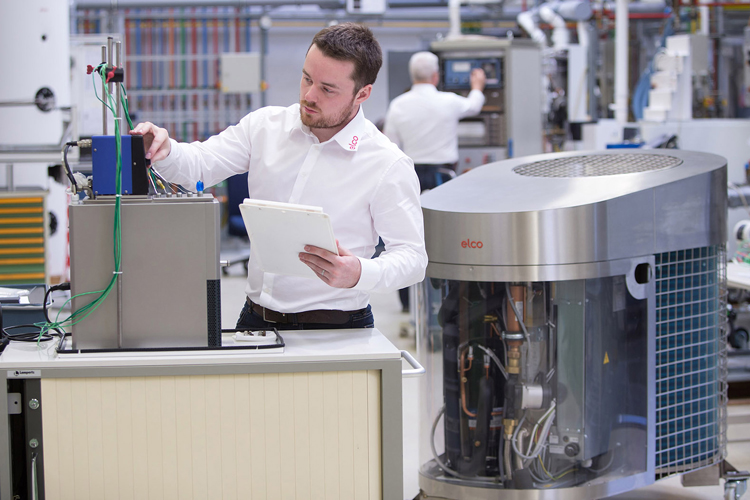New multi family house
Outdoor air-water heat pump in cascade

Our experienced engineers comprehensively assess a project’s requirements to formulate a dedicated technical specification. This can address a number of factors, including comfort, noise, footprint utilisation, building characteristics, critical downtime, climate, and legislation.
This process provides invaluable data on efficiency and environmental performance, leading to a better understanding of any potential financial savings.
For the last 15 years our dedicated System Lab and Application Engineering teams have used state-of-the-art tools to help customers benefit from the highest quality standards and best practices.
We provide documentation - including hydraulic diagrams, electrical schemes and parameter settings of proposed systems - to our technical partners. We provide all kind of solutions for residential, commercial and industrial applications. For new projects or renovation, mono-energy or multiple energy sources, simple or complex.
Every building has individual requirements for an efficient heating system. Here we show you five practical examples of how ELCO implements customised solutions for different residential buildings - from new builds to modernised existing buildings. Our heating systems combine maximum energy efficiency, sustainability and comfort - perfectly tailored to the respective conditions and requirements.
Commercial properties place special demands on heating systems - be it due to long operating times, variable heat requirements or strict environmental regulations. In the following five examples, we show you how ELCO has realised customised heating solutions for various commercial applications. Our systems not only offer maximum efficiency and reliability, but also optimum customisation to meet the specific needs of office buildings, retail outlets and more.
In industry and the public sector, heating systems are often subject to high demands in terms of performance, reliability and efficiency. In the following projects, we show how ELCO has developed high-performance heating solutions for complex industrial and public sector applications. Our systems ensure a constant heat supply, optimise energy consumption and contribute to sustainability - even under the most demanding conditions.
ELCO regularly organises the renowned ‘Tech Days’, where leading architects, engineers and planners present the latest pioneering projects and technologies together with legislators, scientists and other experts. These events offer a unique insight into the innovative solutions that are already being developed today to achieve the EU's ambitious net-zero targets by 2050. The EU's net-zero targets for 2050 mean that by 2050, the European Union aims to emit as many greenhouse gases as it can remove from the atmosphere through absorption or other measures.